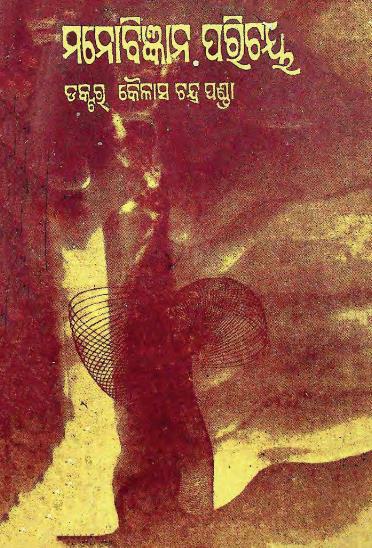In the landscape of human understanding, psychology, or manobigyan as termed in Odia, serves as a cornerstone for unraveling the complexities of the human mind and behavior. Kailas Chandra Panda’s seminal work, Manobigyan Parichaya, published in 1993, embarks on an exploratory journey into the realm of psychology, offering readers a comprehensive overview while emphasizing intelligence and personality.
At its core, psychology can be defined as the scientific study of behavior and mental processes. It encompasses a multitude of dimensions including cognitive, emotional, social, and biological aspects. Panda begins his essay by tracing the evolution of psychological thought, highlighting the transition from early philosophical inquiries into human nature to the more systematic and empirical approaches that characterize modern psychology. This shift set the stage for psychology to emerge as a distinct discipline, paving the way for various branches such as developmental psychology, clinical psychology, and social psychology.
One of the intriguing aspects of Panda’s essay is his discussion of intelligence. Intelligence is often perceived as a singular definitive trait, yet Panda argues for a broader understanding that includes multiple intelligences. Drawing on the ideas of influential psychologists like Howard Gardner, he posits that intelligence is not merely limited to logical or linguistic capabilities but also encompasses musical, spatial, interpersonal, and intrapersonal intelligences. This multifaceted view encourages individuals to recognize and nurture their unique strengths, thereby promoting a more inclusive understanding of human potential.
The essay also delves into the concept of personality, elucidating how it shapes individual behavior and interactions with others. Panda categorizes personality into various traits and dimensions, suggesting that understanding personality is crucial for navigating social environments and personal relationships. He references the Big Five personality traits—openness, conscientiousness, extraversion, agreeableness, and neuroticism—illustrating how these traits can significantly influence decision-making, emotional responses, and overall quality of life.
Moreover, Panda emphasizes the importance of self-awareness in the development of personality. He posits that self-reflection fosters a deeper understanding of one’s emotions and behaviors, leading to personal growth and improved interpersonal relationships. This theme resonates with contemporary psychological practices that advocate for mindfulness and emotional intelligence as fundamental components of mental well-being.
In addition to theoretical discussions, Manobigyan Parichaya also addresses practical applications of psychological principles in daily life. Panda encourages the readers to harness psychological insights to enhance their problem-solving skills, relationship management, and emotional health. By integrating scientific knowledge with everyday experiences, individuals can make informed choices that lead to more fulfilling lives.
In conclusion, Kailas Chandra Panda’s Manobigyan Parichaya serves as an indispensable resource for understanding the foundational concepts of psychology. By weaving together themes of intelligence and personality, Panda not only enlightens readers about the complexities of the human psyche but also empowers them to apply psychological principles in their lives. The essay remains relevant, encouraging a reflective approach to understanding oneself and fostering healthier relationships with others. Through this work, Panda contributes to a broader discourse, inviting readers to appreciate the depth and dynamism of human behavior as examined through the lens of psychology.
Books Info
| Books name | Manobigyan Parichaya /ମନୋବିଜ୍ଞାନ ପରିଚୟ |
| Author | Kailas Chandra Panda |
| No Of pages | 337 |
| Publisher | Books and Books |
| Publication | 1993 3e. |
| Printed At | Maa Sontoshi Press |
| Distributor | NA |

